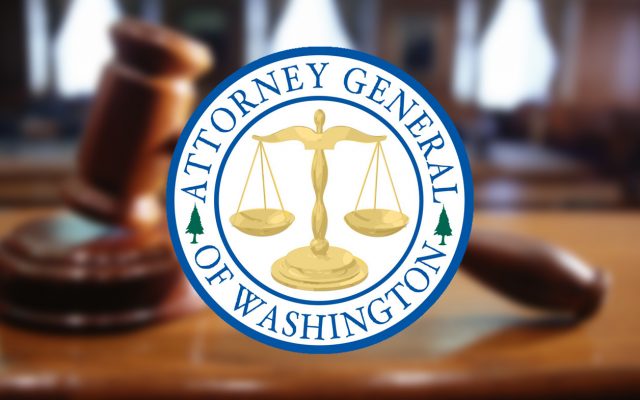Attorney General’s Office completes project to collect lawfully owed DNA from registered sex offenders

Attorney General Bob Ferguson announced that his office completed its project to collect DNA samples from registered sex offenders in Washington who are legally required to provide their DNA but from whom a sample has never been collected or submitted to a lab for testing.
This phase of the project resulted in 372 new DNA profiles entered into the Combined DNA Index System (CODIS), a nationwide database.
Due to the ongoing nature of the investigations, details about how many of these profiles were from local offenders was not available.
According to the announcement from Ferguson, eight out of the 372 newly entered sex offender DNA profiles resulted in a “hit,” meaning the offender’s profile matched DNA evidence already in the database.
- Three unsolved sex offenses in Washington are being reviewed as a result of these CODIS “hits.”
- Two of the hits were confirmatory: either the offender was already convicted, or already a confirmed suspect.
- Three hits are from out-of-state offenses. Law enforcement in those states will be notified of the new hit.
The office has now moved on to the next phase of the project: collecting samples from offenders of all other types of violent crimes. Ferguson’s office is working with local law enforcement around the state to collect lawfully owed DNA samples.
“Out of respect for survivors and their experience, this work must be done,” Ferguson said. “This project is bringing justice to survivors of assault, rape and other violent crimes. The more cold cases that are solved, the safer our communities will be.”
Lawfully owed DNA is defined as a DNA sample from a qualifying criminal offender who should have their sample in CODIS, but from whom a sample has never been collected or submitted to a lab for testing. Washington law requires all offenders convicted of a felony, certain gross misdemeanors and all currently registered sex and kidnapping offenders to provide a DNA sample. Some fail to comply with this part of their sentence. The Attorney General’s lawfully owed DNA project aims to identify and collect these legally required samples.
At the beginning of the project, it was unknown how many sex offenders in Washington had failed to provide a DNA sample as required by law. The Attorney General’s Office identified 635 registered sex offenders who owed a DNA sample in Washington. Law enforcement agencies determined that, of those 635 offenders, 257 could not provide samples because they’re no longer alive, no longer living in the state, incarcerated in another state, deported or a variety of other reasons.
Law enforcement have not yet reached the remaining six offenders, including one offender in Clark County, three in Snohomish County and two in Columbia County. The Attorney General’s Office contacted local law enforcement asking if they could reach these remaining offenders. Clark and Snohomish counties both were able to obtain samples from most of the dozens of offenders who still owe DNA in their jurisdictions, and reported to the Attorney General’s Office that they could not reach the remaining few. The Columbia County Sheriff’s Office has not yet responded about the remaining offenders.
Background on the project
Ferguson launched the lawfully owed DNA project in October 2019. The project is a partnership with the U.S. Department of Justice and local law enforcement aimed at identifying and collecting court-ordered DNA samples. Collected samples are entered into CODIS, where they can be used to help identify the perpetrators of unsolved rapes, murders and other crimes.
Every state requires that individuals convicted of certain crimes, including violent crimes and sex offenses, among others, must have a DNA sample taken to be submitted to CODIS. Courts order individuals to submit their DNA as a condition of their sentence. Jails, correctional facilities and local law enforcement are responsible for collecting the samples and submitting them to the Washington State Patrol Crime Lab. The Crime Lab enters the DNA profiles into CODIS.
There is currently no statewide, uniform process for collecting DNA samples from offenders. Currently, the practices for collecting court-ordered DNA samples vary between counties, and can result in samples not being collected. The Attorney General’s Office Sexual Assault Forensic Examination (SAFE) Advisory Group first recommended in 2019, and again in 2021, that local jurisdictions establish consistent protocols to help ensure court-ordered DNA is collected.
Investigators and prosecutors rely on samples in CODIS to help solve cases and bring justice to victims. When DNA is collected at a crime scene, it is tested by the Crime Lab and checked against the CODIS database. Sometimes the DNA profile that was collected as evidence matches a profile in the CODIS database, which is called a “hit.”
These new “hits” can help identify serial rapists, link cases across the country, shed new light on cold cases and provide answers to crime victims and their families. DNA evidence can also exonerate individuals whom were wrongfully convicted. Thus, collecting lawfully owed DNA from qualifying offenders contributes to a comprehensive approach to addressing sexual assault reform.
The lawfully owed DNA project is part of Ferguson’s initiative to help the state clear its backlog of sexual assault kits and bring justice to survivors. More information about this initiative is available on the Sexual Assault Kit Initiative website.



